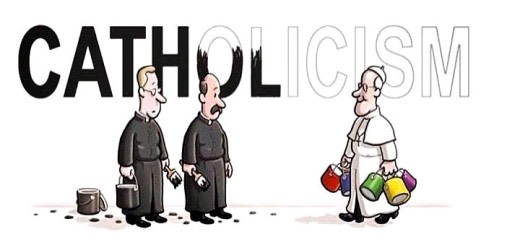Educator in the parish and gay? Father Pino Piva: «The criteria are those of Amoris laetitia»
Article by Luciano Moia in the newspaper AVVENIRE of 23 June 2023, page 19
Father Pino Piva, a Jesuit expert on the topic of "faith and homosexuality", returns to the case of the diocese of Cesena.
«Amoris Laetitia addresses the problem of pastoral "exclusions" that affect so-called "irregular" situations by proposing paths of discernment on a case-by-case basis with a view to ecclesial integration also in ecclesial educational services (L 299). Why is there still no thought of addressing frontier pastoral issues, such as that of the diocese of Cesena, by relying on the pastoral criteria of Amoris Laetitia?".
This is the question posed by Father Pino Piva, Jesuit, organizer among other things of the course for pastoral workers "with" and "for" homosexual people which for years now has attracted dozens of lay pastoral workers and priests, including bishops, to Bologna. The case in question is the one that occurred in recent days in Cesena (we reported it onto comeof yesterday,ed.),where a young gay man was removed from his role as an educator in a parish summer centre, after the boy posted some images on social media in which his orientation was made clear. The parish priest would have allowed him to continue to carry out the role of organizer of the summer center but not that of educator.
Is it really an insurmountable problem that a young homosexual holds educational roles in a summer center?
It is difficult to understand whether the problem was the homosexual orientation "revealed" by the photos or the fact that this boy had an active sexual relationship with another boy. Strictly speaking, only a sexual union outside of heterosexual marriage entails exclusion from ecclesial responsibilities. If the motivation was only the sexual orientation "revealed" by the photos, then it would be a clear discrimination also according to the catechism of the Catholic Church: the problem is only homosexual acts, not orientation.
If, however, the young man had admitted to his parish priest an active relationship with a boy, and above all the intention not to interrupt it, then his exclusion would have been morally justified; as for the "irregular" heterosexual situations of cohabitants or divorcees in second unions, who are normally denied educational responsibilities in the faith in the Church. But it is precisely in these cases thatAmoris Laetitiaproposes paths of pastoral inclusion, also entrusting educational tasks on a case-by-case basis, if possible.
How does this matter fit into the question posed in the Instrumentum laboris of the Synod and already underlined in the document of the Italian synodal path regarding the need to "how to reach out to people who feel excluded from the community due to their affectivity and sexuality"?
If today we respond to sexually "irregular" situations like thirty or forty years ago - as ifEvangelii Gaudiumis Amoris Laetitiahad the words of the Synod not been written they risk remaining pure rhetoric. We must start from there to exercise that case-by-case discernment to which Pope Francis calls us; discernment that he himself does not reserve only for heterosexual divorced and remarried people (AL 297).
In fact, the Pope states in the Post-Synodal Exhortation on the family, at n. 305: «A Pastor cannot feel satisfied only by applying moral laws to those who live in "irregular" situations, as if they were stones thrown at people's lives (...)
Due to conditioning or mitigating factors, it is possible that, within an objective situation of sin - which is not subjectively guilty or which is not fully so - one can live in God's grace, one can love, and one can also grow in the life of grace and charity, receiving the help of the Church for this purpose. Discernment must help us find possible ways of responding to God and growing through limitations."
Indeed, in the particularly delicate case of Cesena, we must ask ourselves: has the necessary and appropriate pastoral discernment been carried out?






